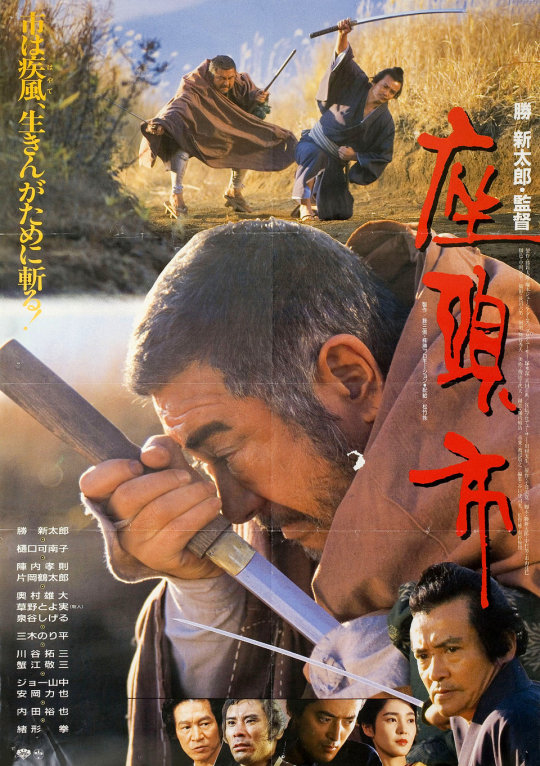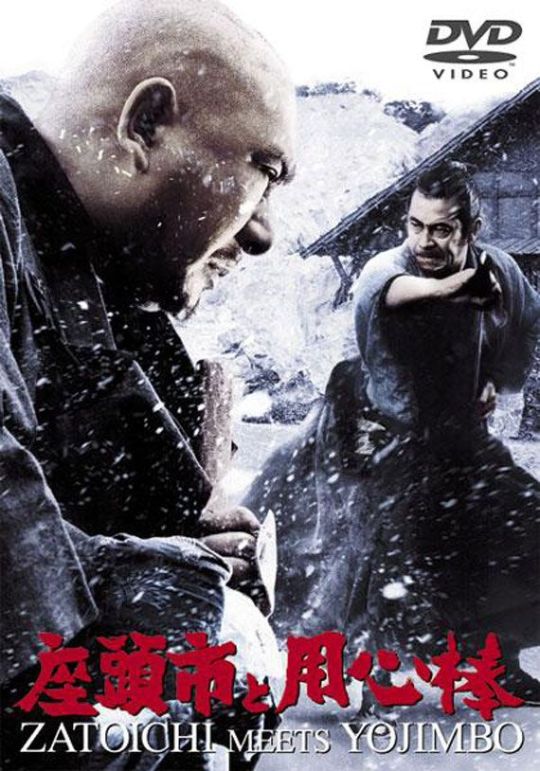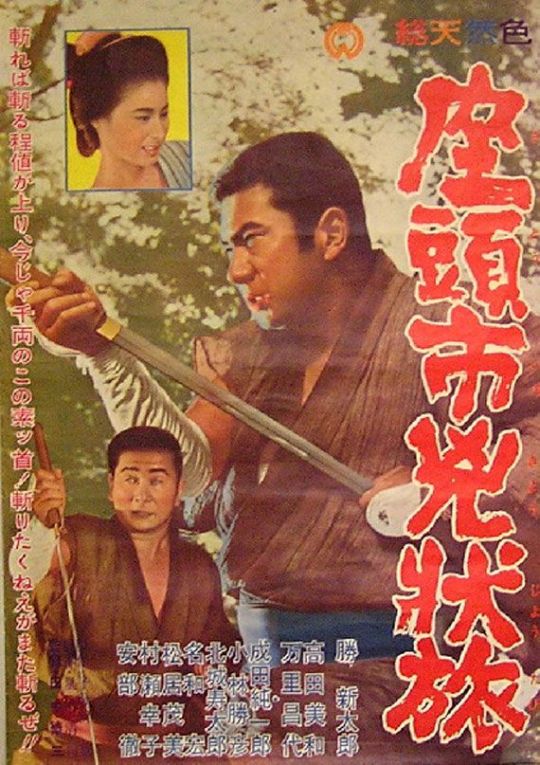#Zatoichi: Darkness Is His Ally
Explore tagged Tumblr posts
Text

Zatoichi (1989), aka Zatoichi: Darkness Is His Ally.
This was the last film in the original 26-film series featuring the blind swordsman, Zatoichi. It was released 16 years after the previous entry, Zatoichi's Conspiracy. In the intervening years, Zatoichi appeared in a 100-episode television series broadcast over four years.
Shintaro Katsu not only starred in the film, he directed it (his second in the series), co-wrote it, and produced it. It was his chance to say goodbye to the character he had most been associated with and which brought him the most fame and acclaim.
This is not the best film in the series by any means. It is overlong and the pacing is off; there are one or two scenes that were inserted just to appease Katsu-san's vanity; and many small bits are repeated from previous films that give the impression that this is a "best of..." compilation film.
On the other hand, it is not a terrible movie, either. Watching this film, albeit with a much older Zatoichi, feels like visiting with an old friend. And I still prefer it to any of the so-called Zatoichi films that were released years later.
Besides this being Katsushin's swan song as Ichi, the film's reputation will always be marred, at least in Japan, by a tragic death that occurred during production.
Katsushin's son, Ryutaro Gan, played the villainous yakuza Boss Goemon in the film. While filming a battle scene Gan, with what he thought was a prop sword, stabbed fellow actor Yukio Kato. The sword was real and, tragically, Kato died from his wounds.
#Zatoichi#Zatoichi: Darkness Is His Ally#Shintaro Katsu#yakuza#chambara#jidaigeki#anma#blind swordsman
17 notes
·
View notes
Photo


Zatoichi Meets Yojimbo (1970).
The first cinematic meeting between the titans of two studios - Shintaro Katsu from Daiei Film and Toshiro Mifune from Toho - was produced by Katsu-san’s Katsu Productions. The two actors would team again the same year for the film Machibuse (aka The Ambush and Incident at Blood Pass), which was produced by Mifune-san’s production company.
At 115 minutes, this is the second longest film in the original Zatoichi film series (the final film in the series, 1989′s Zatoichi: Darkness Is His Ally, is one minute longer). The rest of the films ran 90 minutes or less. Presumably, Zatoichi Meets Yojimbo’s longer duration was to make the most of each star’s presence, as they both have equal screen time.
As I have noted in this blog before, despite the title, Mifune-san is not portraying the "Ronin Without A Name” from the classic films Yojimbo and Sanjuro. His character, ronin Daisaku Sasa, is similar in many ways to the one he portrays in the previous films, but nonetheless this is a different person.
It’s also interesting that Zatoichi is sporting a shaved head in this film, which he hasn't since the very first film back in 1962. Back then Katsu-san had just finished playing a priest with a shaved head before starting as Zatoichi, so that was understandable (and a close examination of the first film will show Katsu-san’s air growing back rather quickly). As to why Katsu-san has a shaved head this time - whether for another role or just personal preference - I have not been able to determine.
#Zatoichi Meets Yojimbo#Zatoichi#Yojimbo#Daisaku Sasa#Shintaro Katsu#Toshiro Mifune#jidaigeki#chambara#Daiei Film
36 notes
·
View notes
Photo

Zatoichi the Fugitive (1963).
This is the fourth film in the Zatoichi film series, and the second of three released that year. It concludes the origin and backstory of everyone’s favorite blind swordsman.
It is not necessary to watch the first four films in order - each film gives you all the information you need to fully understand what’s going on - but I highly recommend doing so. You will get a greater appreciation of Ichi, and witness how he progresses as a character.
All the other films in the series, from the fifth (Zatoichi On the Road) through the twenty-sixth and last (Zatoichi: Darkness Is His Ally), are stand-alone stories and can be seen in any order. When you finish watching all of them, you can then jump into the 100-episode long Zatoichi television series.
14 notes
·
View notes